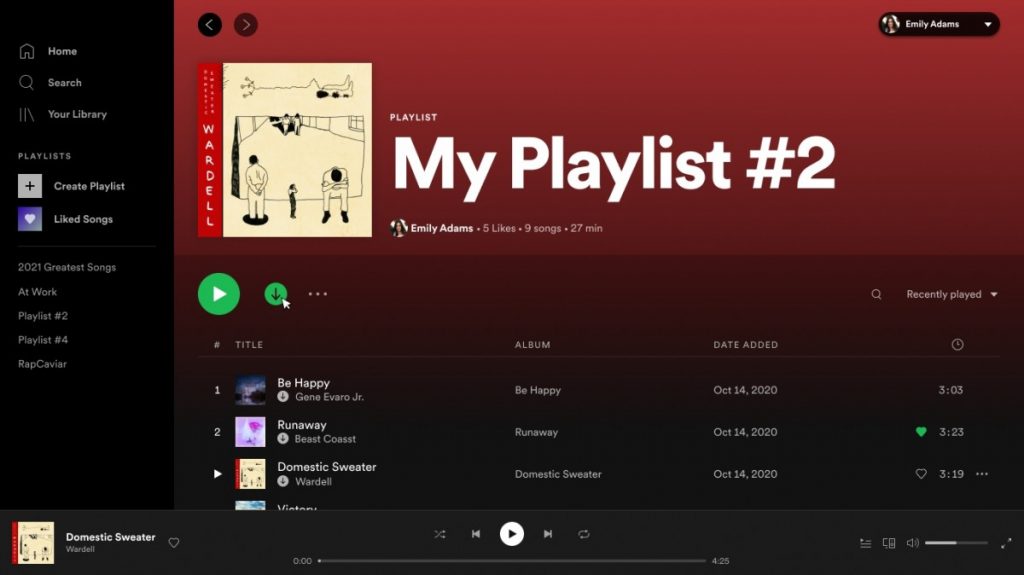If you look at how the music industry worked in the 2000s, the change that has taken place today is abysmal. The sale of records was changed by the reproductions on Spotify, this is how the success of the artists is measured many times. The music streaming giant, which today celebrates 15 years of existence, came to the music scene to completely change the rules of the game.
Due to file sharing platforms peer-to-peer What Napster y Limewire, revenue from recorded music in the United States lost more than half of their value in the early years of the 21st century, falling precipitously from an all-time high of $ 14.6 billion in 1999 to $ 6.7 billion in 2014 and 2015 , according to the RIAA.

When songs went from being sold on a physical object like a CD or vinyl to becoming a sound file that could be easily and illegally distributed for free. Piracy ran rampant, leaving the music industry helpless without allowing to assimilate the drastic change that had been generated.
Who owns Spotify and how did you come up with the idea?
Spotify, a brainchild of Swedish entrepreneurs Daniel Ek and Martin Lorentzon, changed all that. Founded in Stockholm on April 13, 2006When its creators were only 14 years old, it was looking for a solution to the problem of piracy in the industry.
The streaming service was built on the scoop that people who are not willing to buy a specific album or song, they might be willing to if it came with more content.
Finally the idea of pay for ease of access to a large music library for a monthly fee (or free with ads every five songs). It seemed to be the best option to deal with the problem.
Since its 2014 low, the music industry has grown by 44%, driven primarily by streaming revenues which increased 500% over this same period. In 2020 alone, Spotify paid $5B+ and makes up about 20% of global recorded music industry revenue, more than any other streaming service. ⬇️ pic.twitter.com/fkfmllXFY9
– Daniel Ek (@eldsjal) March 18, 2021
The site is an open archive, easily searchable and packed with more music than anyone could ever play. The launch of the company in the United States in July 2011 opened the doors to a new world. A short time later Apple would follow in his footsteps, Apple Music it debuted four years later.
To what extent has Spotify transformed the world of music?
The platform increased from 7% of the US market in 2010. While in 2020 it increased to a whopping 83%. Even recorded music revenue saw its fifth consecutive year of growth., topping 12.2 billion, according to the RIAA.
It is no exaggeration to say that streaming saved the recorded music business and that the global market leader, Spotify, led the charge towards the stability and growth that the industry is enjoying today.
Illegal downloading and file sharing introduced by Napster, Limewire and others, like the one remembered Ares. They led to such rampant piracy that It seemed that the profits of the music industry would go from bad to worse.
#FearlessTaylorsVersion is just as powerful 13 years later ✨
Here are the Top 10 Global Album Debuts over the past weekend #SpotifyCharts pic.twitter.com/mdx2B72PIK
– Spotify Charts (@spotifycharts) April 12, 2021
However, Spotify made legal transmission so easy that it taught younger generations to pay for music again. Although at a fraction of the previous price of a CD.
In a study of UK performed by the market researcher YouGov, music piracy fell from 18% in 2013 to 10% in 2018, and 22% of respondents who downloaded music illegally said they expected to stop within five years. In fact, a 2019 study of all online piracy by American University International Law Review states: “Our main conclusion is that online piracy is on the decline«.
A world of possibilities
Another important point is the massification of music and the internalization of artists in ways that in previous decades were unthinkable. Subscription services allow users to explore unlimited artists, genres and sounds for a small fee. Due to this accessibility, Spotify has become an environment conducive to experimentation For both music lovers and music creators.
The launches are produced in the same instant all over the world, you can repeat your favorite song as many times as necessary. Like also making your own song list, without the need to record a cassette or a disc with a maximum of 10 or 20 songs.


The music scene changed completely, but always to the benefit of the industry and music lovers themselves. That is, if there is a pending issue in relation to the royalties towards the artists for the reproductions generated.. Many of them comment that the earnings of a musician are not consistent with the large amount of money that the company earns.
–

